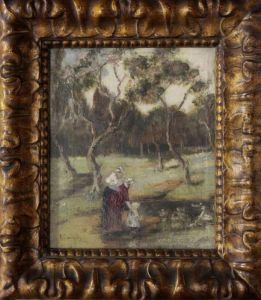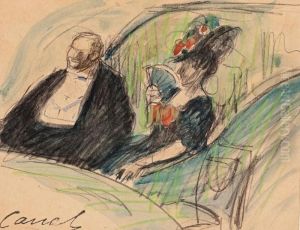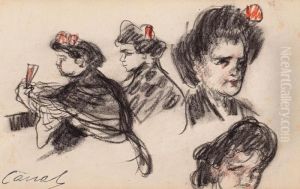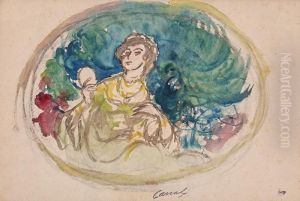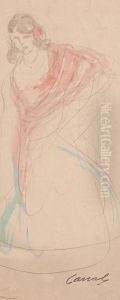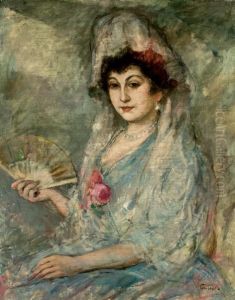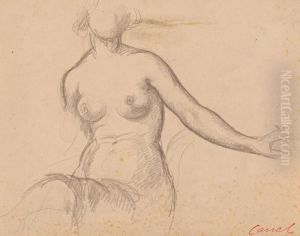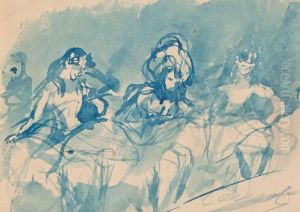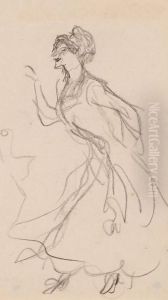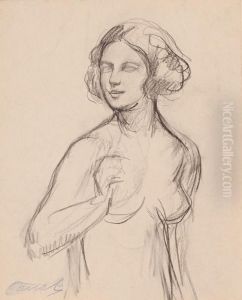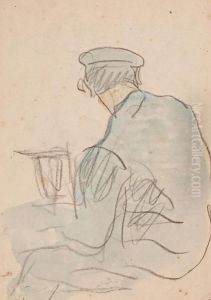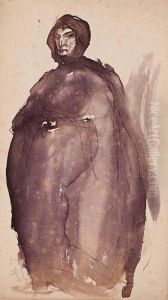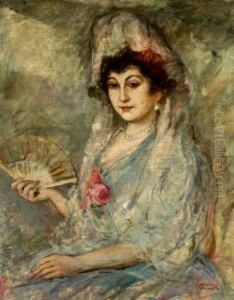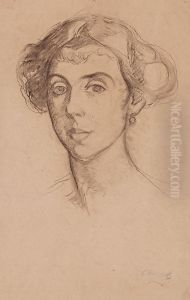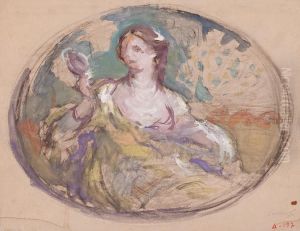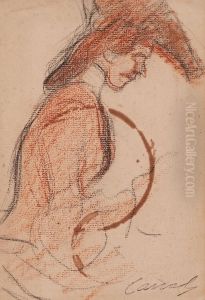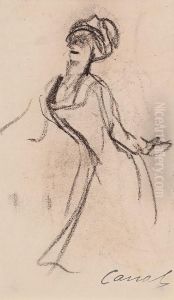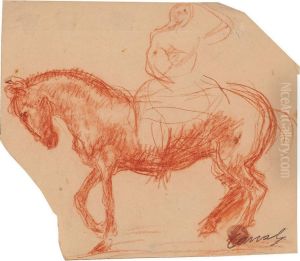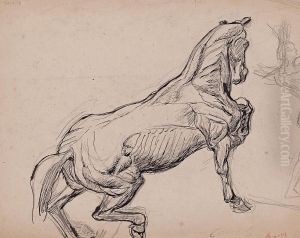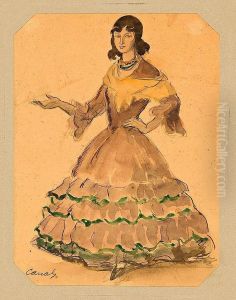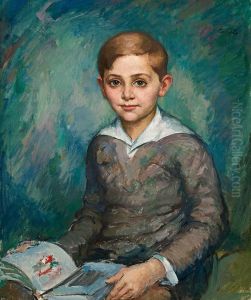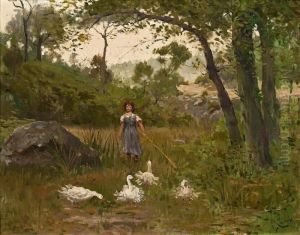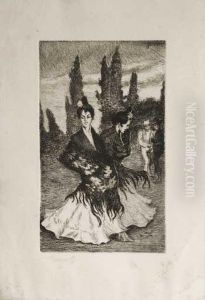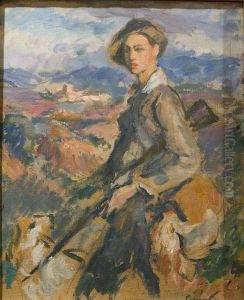Ricard Canals Paintings
Ricard Canals i Llambí was a Catalan painter, engraver, and draughtsman born on December 5, 1876, in Barcelona, Spain. He is considered one of the notable figures of the modernisme movement in Catalonia, which is akin to the broader Art Nouveau movement that swept through Europe at the end of the 19th century.
Trained at the Escola de la Llotja in Barcelona, Canals was heavily influenced by his contemporaries and predecessors, including Ramon Casas and Santiago Rusiñol, with whom he later associated in the Colla del Safrà, a group of artists interested in the avant-garde and modernist movements. His early work was marked by a strong social component, often depicting the harsh realities of the working class and the marginalized sectors of society.
In 1896, Canals moved to Paris, which was then the epicenter of the avant-garde art world. Here, his style evolved as he was exposed to the work of French Impressionists and Post-Impressionists. During his time in Paris, Canals became friends with Pablo Picasso and participated in the vibrant cultural scene of the Montmartre district. He exhibited at the Salon d'Automne and the Société des Artistes Français, among other venues.
Canals' Parisian period was characterized by a lighter palette, a focus on light effects, and a loose, expressive brushwork. His subjects often included café scenes, cabarets, and Parisian street life, reflecting the bohemian lifestyle he was immersed in. He also created a notable series of portraits and landscapes during this time.
After returning to Barcelona in 1907, Canals continued to paint and exhibit his work. He also engaged in graphic work, contributing illustrations to various publications and exploring printmaking techniques. His later work displayed a return to more structured compositions and a renewed interest in classical themes and figures, though he maintained his distinctively modernist style.
Ricard Canals' contributions to Catalan art were significant, as he helped bridge the gap between the traditional and the avant-garde. His work is now part of several museum collections, including the Museu Nacional d'Art de Catalunya in Barcelona.
Ricard Canals i Llambí passed away on February 7, 1931, leaving behind a legacy that encapsulates the dynamic and transitional nature of the turn-of-the-century art world.
